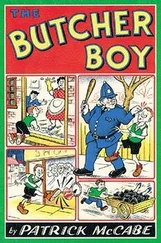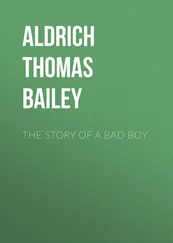“Not much business this time of night. Mostly dedicated lushes who’ve lost their licenses. A few old folks out visiting each other. Now and then a whore or two.”
“Must be hard to break even.”
“Not too bad, really. When it gets slow we hang around the airport for the late flights. Nobody wants to call Aunt Mary to come pick them up at two A.M.”
“I guess not.”
They sat in silence for awhile. He could see one advantage to the late shift. Even on Colfax the traffic was light, and the cab was able to glide down the street catching each signal just at the moment when it turned green. He looked at his watch again. Just a little after midnight. He resented the way time was passing. He was going to need as much as he could get. At the Pirate’s Cove he reached over the seat and gave the driver a bill. “Ten cover it?” he said, facing downward away from the light.
“Sure,” said the driver. “Thanks.” He’d tipped generously but not enough to be remembered.
“ ’Night,” he said and quickly got out, heading toward the glass door of the restaurant. When he heard the cab pull away he bent down to tie his shoe until the car was too far away for the driver to see him. Then he straightened up and moved off down the street toward the Constellation Hotel.
It was seven stories, shaped like a cereal box. He went around the block to approach it from the rear. There was a parking ramp and a broad loading dock. To the left of the dock he could see that one part of the back wall was pierced with ventilators and fans with screens over them and a number of pipes—the kitchen. Just in front of it he noticed a small wooden stockade. He walked up to it, opened the gate, and looked inside. There were two large garbage dumpsters. He opened the first, and the smell of it nearly gagged him. He tried the other, and it seemed to be mostly cardboard boxes flattened to save space. He set the suitcase on top and closed the cover, then made his way to the back entrance of the parking ramp.
There was an elevator, so he entered it and studied the panel of buttons, then pushed Lobby , and waited. He hoped it wasn’t too empty. The way he looked he couldn’t afford much company, but if he were alone it would be worse. When the doors opened he stepped out quickly, keeping his head down and moving across the lobby at a slight angle from the front desk toward the only doorway he could see. There were two young couples, well dressed, lounging in the oasis of furniture in the center of the room. One of the women had her shoes off and was rubbing her toes wearily. The man with her said something about a nightcap and she rolled her eyes in distaste.
He knew exactly what he was looking for, but had no way of knowing if the hypothesis were correct. As he came abreast of the front desk he quickly stared at the mail boxes. Room 406, unquestionably, he thought. He had to try it, anyway. The person most likely to have written messages pile up in his mailbox this late at night in a hotel would be the Senator. He kept on going out the front door to the street, then walked around to the parking ramp again and pushed the elevator button for the fourth floor. This would be the hard part.
When the door opened he was prepared to see a uniformed guard, but the corridor was empty. As he searched for 406, part of his mind was taking note of which rooms seemed to be occupied. He heard voices behind one door, the background music from a television show behind another. There were Do Not Disturb signs hanging from some of the doorknobs. He went past 406 and down the corridor to take a look at the other elevator and the stairway. He had to get out of here afterward.
At the end of the hallway there was a room where the sign said, Please Make Up the Room . He wondered—it could just be somebody who’d reversed the sign by accident, meaning to leave the Do Not Disturb side out. He stopped and listened. There was no sound. He decided to chance it.
He took out his wallet and selected a credit card, then carefully slipped it into the door latch, easing the door open and waiting for the chain to catch. The door wasn’t chained, so he moved inside and stood still, his back to the door, listening. He waited for his eyes to get used to the light, trying to sense whether there was anyone asleep in the bed. He crouched, trying to line up the surface of the bed with the dim glow of the window. When he succeeded he was sure. The silhouette of the bed was flat.
Quickly he walked to the window and out to the balcony. The Senator’s balcony would be the fifth one over. He wondered if he could even do it now, tired and hurt and cold. He studied the row of identical, iron-railed balconies. Yes, he thought, that was the way in. They were far enough away from each other so a fat-ass architect would assume no one could make it from one to the other.
He went back into the room and closed the window. He looked around for something long enough to reach. There was a long, low table along one wall. He studied it—no, it was bolted down too securely, and it was too heavy to handle alone. Then he noticed the closet. It was a double closet, huge, for a hotel room. He looked inside and saw the shelf. Perfect, he thought. It was a good ten inches wide and eight or nine feet long. Thank God for good, substantial hotels. And it was screwed in, too. Working rapidly, he used his pocketknife to take out the screws, then brought the shelf out with him to the balcony.
He stopped to take one last look at the layout of the room, memorizing the location, size, and shape of each piece of furniture. Then he slowly and carefully extended the board across the void between his balcony and the next one. It reached, the other end making a light tap on the railing as he set it down. He lifted his right leg up and got his knee on the board, then the other one. He winced with pain. He had forgotten that. It would be a long, hard crawl. The shelf bowed in the middle as he eased his weight onto it, but it seemed safe enough. Four floors below him he could see the little fence with the garbage dumpsters in it, a tiny square in the corner of the parking lot. He thought about falling all that way; lying there in the cold, smashed on the pavement. But then he was at the end of the board. He swung his legs down to the balcony and turned to pull the shelf behind him. One down, four to go.
One after another he took them, not thinking about the rest of it now, not thinking about anything but crossing the cold, empty space that separated him from the fifth balcony. And then he was there. He leaned the shelf against the wall, then thought better of it. There might be some vantage, from some other building, where somebody could see it. He laid it down flat on the balcony, then ran his hand along the edge of the sliding window to feel for the latch. There wasn’t one on the outside. Another security feature, he thought. Then he went to the other end of the window and checked that, hopelessly.
He would have to take the chance of leaving a sign. He opened his knife and slipped the blade under the rubber molding a few inches below the level of the inside latch, then slowly brought it up. The glass shifted minutely. He smiled, and kept smiling even though it hurt. It was just as he’d hoped. The latch was secure, but the glass wasn’t fitted tightly to the aluminum frame. Using a gentle, steady pressure of his finger tips, he slid the large pane as far as it would go away from the latch, then stuffed his handkerchief into the crack to hold it there. He studied his accomplishment. He had about an eighth of an inch to work with now. Using his knife as a pry, he bent the aluminum frame a little to gain a few more thousandths of an inch. Then he took the knife and pointed the blade up under the latch. The spring was strong, but he managed to lift the hook clear of the catch and slide the window free. He stopped for a moment with the window open a hair, and pressed the molding and frame back into shape. He whisked his handkerchief over the glass and the frame, just in case. They wouldn’t put it in the papers, he thought, but they’d send somebody to do it even if they thought he died of old age.
Читать дальше












